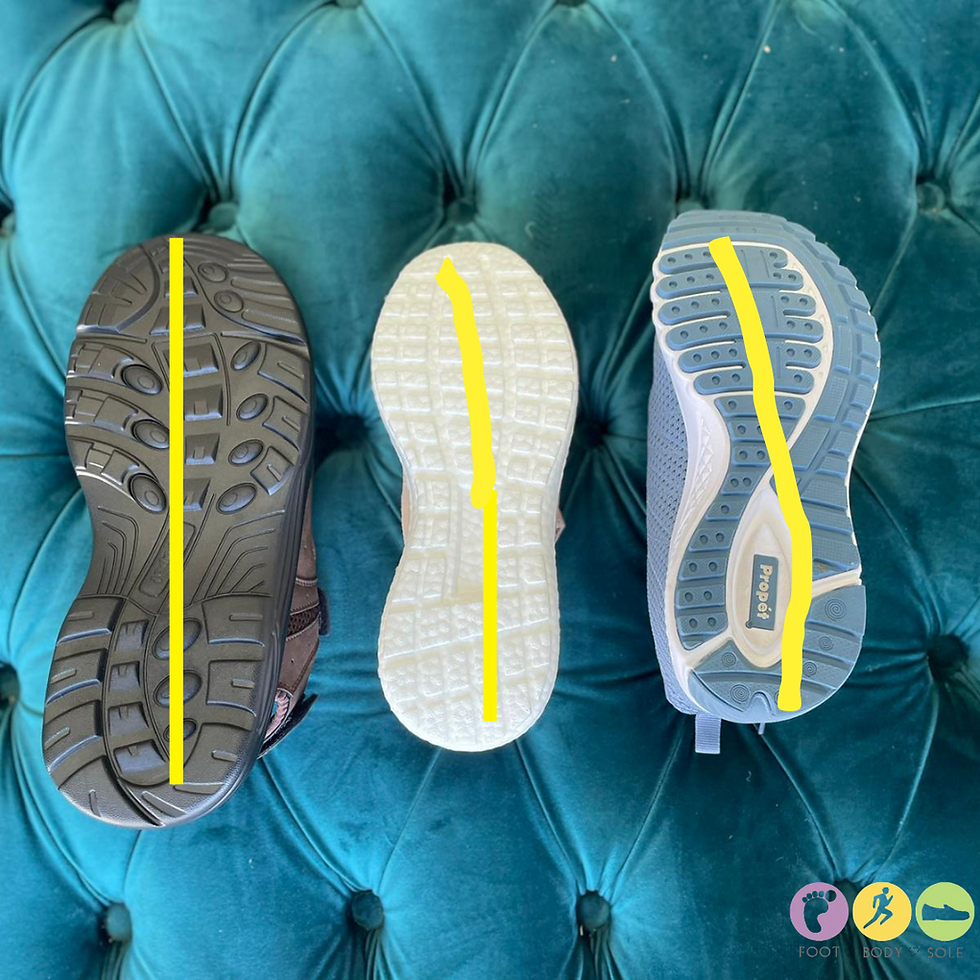Plantar Fasciitis
- Foot Body Sole
- Jun 16, 2019
- 3 min read
Do you have a dull, achy pain in your heel?
Is it worst first step in the morning or after rest?
You may have what’s known as plantar fasciitis!

What is plantar fasciitis?
Plantar fasciitis is often the underlying cause of heel pain that presents to our podiatry clinic.
The plantar fascia is a soft tissue structure that runs along the arch of your foot and attaches into the heel bone. It can affect people of all ages and has typical characteristics such as deep, dull and achy pain that warms up throughout the day and is worst first thing in the morning.
Plantar fasciitis is a painful soft tissue injury associated with thickening and tightness within the band of tissue. It can be a debilitating injury that can benefit from podiatric intervention.
How does it occur?
It can become painful and irritated from poor biomechanics, poor footwear or support or tight muscles.
What treatment’s are available?
If this sounds like something you’ve been suffering from, there are treatments available!
At Foot Body Sole we offer a variety of different treatments for plantar fasciitis as we know that everyone responds differently. We recommend weekly to fortnightly treatments that aim to reduce pain and increase mobility to keep you happy and healthy!
Taping: a useful treatment method to offload your plantar fascia. This treatment aims to reduce the stresses that poor biomechanics may be placing on the foot and can help us determine factors that may be influencing your injury!
Plantar fasciitis socks: sometimes taping can be tricky, which is why we also stock plantar fasciitis socks. These socks act by applying compression and support to the plantar fascia which assists in reducing swelling and pain and increasing circulation.
Ultrasound/shockwave therapy: ultrasound or shockwave therapy can promote circulation to the injured area to promote healing. Shockwave specifically act’s by re-injuring tissue that may be stuck in it’s inflammatory phase, to then promote healthy healing to the area.
Dry needling: dry needling can reduce muscle tightness that often exacerbates plantar fasciitis. It can also dilate the blood vessels in the affected areas which helps to flush out inflammatory cells caught within the tissues.
Stretching/massage exercises: stretching and massage exercises are commonly prescribed to reduce tension within the plantar fascia that may be contributing to your pain.
Orthotic therapy: orthotics can help to support your feet and correct poor biomechanics that may be contributing to your injury. They help to support the arch and plantar fascia and enable your feet to work more effectively.
Rehab program: once your pain has reduced, we will provide you with a rehab program to help strengthen the plantar fascia and prevent re-injury down the track.

Tips to avoid plantar fasciitis!
Simple tips that can help you avoid plantar fasciitis include:
Wearing supportive footwear: supportive footwear enables the feet to function appropriately without adding extra strain to specific areas. Thongs and bare feet can put strain on the structures in your feet and legs and cause unwanted injuries.
Stretching: many work roles involve constant sitting and low activity levels which can leave the muscles feeling tight and strained. Regular stretching particularly after exercise enables muscles to recover more efficiently and reduce tightness and pulling on soft tissue structures.
If you or someone you know is suffering from plantar fasciitis, come in and see us here at Foot Body Sole! CLICK below to make a booking or call 1800 778 316.










Comments